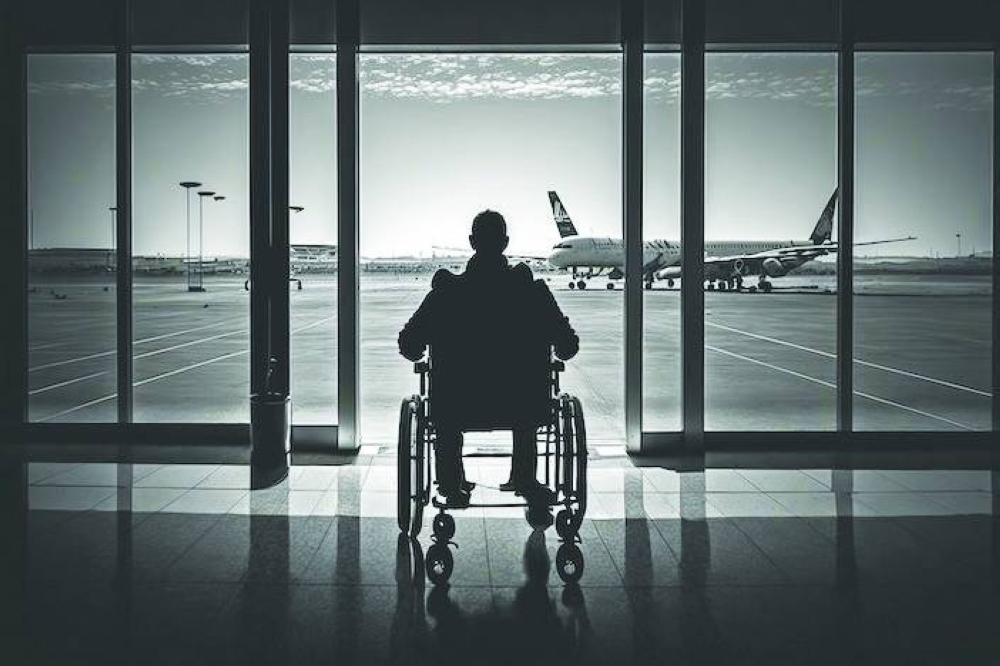Providing adequate facilities for differently-abled airline passengers is not only a matter of compliance with international regulations, but also a moral and business imperative.
International regulations necessitate total compliance by airlines on treaties such as the 'UN Convention on the Rights of Persons with Disabilities' or airline-specific accessibility guidelines.
Also, compliance with regulations such as the Air Carrier Access Act (ACAA) or EU Regulation 1107/2006 avoids legal liabilities and potential penalties for airlines.
Providing accessible services like priority boarding, accessible seating, in-flight assistance, and wheelchair support reduces stress for differently-abled passengers.
Such facilities improve overall passenger satisfaction, leading to positive reviews and increased recommendations.
The World Health Organisation (WHO) estimates that over 1.3bn individuals live with some form of disability, representing around 16% of the global population.
As the population ages, the percentage of people with disabilities is expected to increase. Fortunately, most countries, and the airline industry in particular, have demonstrated a strong commitment to improving accessible air transport for differently-abled passengers.
While current regulations focus predominantly on addressing concerns through individual jurisdictions, achieving significant progress will require shifting the focus to the establishment of a cohesive global framework.
“Universally co-ordinated and accessible air transport can only be achieved through close collaboration along the aviation value chain. ICAO is heightening co-operation with IATA and ACI on this priority, because it is only by showing governments and operators how to work together as one that we will successfully tackle existing barriers in air travel,” noted Juan Carlos Salazar, ICAO’s Secretary-General.
“Airlines want to ensure safe, reliable, and dignified travel for every passenger, including those with disabilities. To deliver this, airlines, airports and the disability community must work together. On top of this, national regulatory frameworks for passengers with disabilities must support successful service delivery no matter where a journey begins or ends. Co-ordination among all these players is the key to empowering passengers with disabilities to travel with confidence. We have high expectations that this event will move us towards that goal,” said Willie Walsh, IATA’s Director-General.
ACI World Director-General Justin Erbacci points out: “ACI is committed to helping our member airports enable barrier-free environments that provide equal access and outstanding travel experiences for all guests, regardless of ability. This symposium will bring together aviation stakeholders from across the ecosystem to engage in meaningful dialogue to identify actionable steps toward creating a more accessible air transport system.”
Recently, ICAO, along with Airports Council International (ACI) and the International Air Transport Association (IATA), hosted the Symposium on Accessibility in International Civil Aviation at ICAO headquarters in Montréal.
The event brought together governments, industry leaders and advocacy groups to tackle barriers to air travel faced by persons with disabilities or reduced mobility.
Held under the theme “Inclusive and Universally Accessible Air Transport for Persons with Disabilities and Reduced Mobility,” explored strategies that create a more accessible air transport system.
Industry experts have stressed the need for more “accessible” terminals with ramps, elevators, and wide pathways with focus on people with special needs.
They require specialised seating such as accessible seating arrangements with extra legroom and adjustable armrests.
Such passengers also need support services such as on-ground assistance for navigation, boarding, and deplaning.
Industry experts also call for accessible communication with announcements in multiple formats, including visual, auditory, and braille.
Specialised equipment such as in-flight wheelchairs and accessible lavatories will come in handy for such passengers.
More personnel trained to handle various disabilities with empathy and skill have also to be deployed in airports around the world.
Tailor-made facilities for differently-abled people ensure all individuals, regardless of their abilities, can travel with dignity and independence.
Such efforts demonstrate respect for diversity and promotes equal opportunity for leisure, work, or emergency travel.
Pratap John is Business Editor at Gulf Times. X handle: @PratapJohn

Providing adequate facilities for differently-abled airline passengers is not only a matter of compliance with international regulations, but also a moral and business imperative

